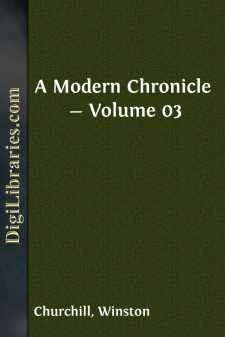Fiction
- Action & Adventure 183
- Alternative History 1
- Biographical 15
- Christian 59
- Classics 6965
- Coming of Age 5
- Contemporary Women 3
- Erotica 8
- Espionage/Intrigue 12
- Fairy Tales, Folklore & Mythology 236
- Family Life
- Fantasy 117
- Gay 1
- General 596
- Ghost 32
- Historical 809
- Horror 43
- Humorous 161
- Jewish 25
- Legal 4
- Medical 22
- Mystery & Detective 315
- Occult 1
- Political 49
- Psychological 41
- Religious 64
- Romance 160
- Sagas 11
- Science Fiction 730
- Sea Stories 113
- Short Stories (single author) 538
- Sports 10
- Suspense 2
- Technological 8
- Thrillers 3
- Urban Life 31
- Visionary & Metaphysical 1
- War & Military 173
- Westerns 199
Family Life Books
Sort by:
by:
Eleanor Gates
APRON-STRINGS CHAPTER I "I tell you, there's something funny about it, Steve,—having the wedding out on that scrap of lawn." It was the florist who was speaking. He was a little man, with a brown beard that lent him a professional air. He gave a jerk of the head toward the high bay-window of the Rectory drawing-room, set down his basket of smilax on the well-cared-for Brussels that,...
more...
by:
Arnold Bennett
The Last of a Schoolboy. Edwin Clayhanger stood on the steep-sloping, red-bricked canal bridge, in the valley between Bursley and its suburb Hillport. In that neighbourhood the Knype and Mersey canal formed the western boundary of the industrialism of the Five Towns. To the east rose pitheads, chimneys, and kilns, tier above tier, dim in their own mists. To the west, Hillport Fields, grimed but...
more...
CHAPTER I The sun shone, that morning, and even from a city office window the Spring wind could be felt, sweet and keen and heady, making you feel that you wanted to be out in it, laughing, facing toward the exciting, happy things Spring was sure to be bringing you, if you only went a little way to meet them—just a little way! Marjorie Ellison, bending over a filing cabinet in a small and solitary...
more...
CHAPTER I. The Overture—After which the Curtain rises upon a Drinking Chorus A crow, who had flown away with a cheese from a dairy-window, sate perched on a tree looking down at a great big frog in a pool underneath him. The frog's hideous large eyes were goggling out of his head in a manner which appeared quite ridiculous to the old blackamoor, who watched the splay-footed slimy wretch with...
more...
by:
Edna Ferber
CHAPTER ONE You could not have lived a week in Winnebago without being aware of Mrs. Brandeis. In a town of ten thousand, where every one was a personality, from Hen Cody, the drayman, in blue overalls (magically transformed on Sunday mornings into a suave black-broadcloth usher at the Congregational Church), to A. J. Dawes, who owned the waterworks before the city bought it. Mrs. Brandeis was a...
more...
by:
Wilkie Collins
OPENING CHAPTER. A CHILD'S SUNDAY. At a quarter to one o'clock, on a wet Sunday afternoon, in November 1837, Samuel Snoxell, page to Mr. Zachary Thorpe, of Baregrove Square, London, left the area gate with three umbrellas under his arm, to meet his master and mistress at the church door, on the conclusion of morning service. Snoxell had been specially directed by the housemaid to distribute...
more...
by:
Gustave Droz
CHAPTER I. MY FIRST SUPPER PARTY The devil take me if I can remember her name, notwithstanding I dearly loved her, the charming girl! It is strange how rich we find ourselves when we rummage in old drawers; how many forgotten sighs, how many pretty little trinkets, broken, old-fashioned, and dusty, we come across. But no matter. I was now eighteen, and, upon my honor, very unsuspecting. It was in the...
more...
PRELUDE An Hour in the Life of Two Modern Young People April, 1909.Lounging idly in the deserted little waiting-room was the usual shabby, bored, lonely ticket-seller, prodigiously indifferent to the grave beauty of the scene before him and to the throng of ancient memories jostling him where he stood. Without troubling to look at his watch, he informed the two young foreigners that they had a long...
more...
by:
Horatio Alger
CHAPTER I. NEW PLANS. "So this is to be your first day in Wall Street, Rufus," said Miss Manning. "Yes," said Rufus, "I've retired from the newspaper business on a large fortune, and now I'm going into business in Wall Street just to occupy my time." The last speaker was a stout, well-grown boy of fifteen, with a pleasant face, calculated to inspire confidence. He...
more...
SO LONG AS YE BOTH SHALL LIVE! It was late November. And as Honora sat at the window of the drawing-room of the sleeping car, life seemed as fantastic and unreal as the moss-hung Southern forest into which she stared. She was happy, as a child is happy who is taken on an excursion into the unknown. The monotony of existence was at last broken, and riven the circumscribing walls. Limitless possibilities...
more...











